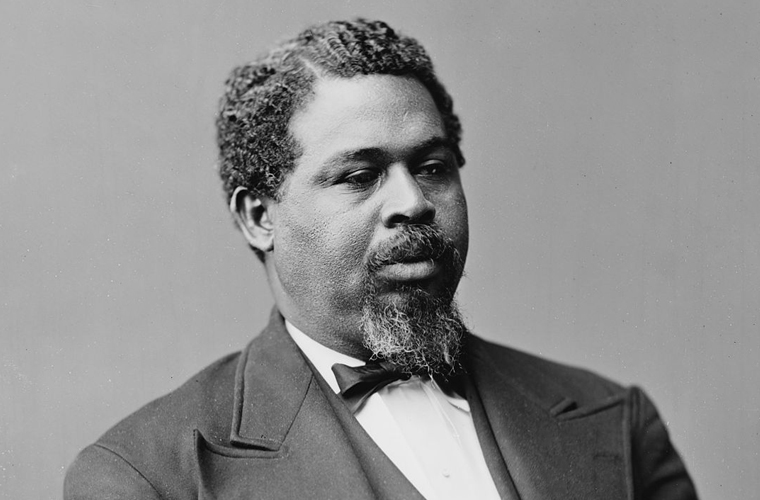Robert Smalls (April 5, 1839 – February 23, 1915) was an American politician, publisher, businessman and maritime pilot. He was born into slavery in Beaufort, South Carolina, but he achieved freedom and fame by commandeering a Confederate ship during the Civil War and sailing it to the Union blockade. He later became the first Black captain of a vessel in U.S. service and served as a congressman during Reconstruction. His life story is one of courage, intelligence and leadership.
Smalls was enslaved by Henry McKee, who owned a plantation near Beaufort. Smalls worked as a house servant, a field hand and a dockworker before he was hired out to work on the steamship Planter, which transported supplies and troops for the Confederacy. Smalls learned how to navigate the ship and became familiar with the Charleston harbor and its defenses.
On May 13, 1862, Smalls saw an opportunity to escape when the white officers of the Planter left the ship for the night, leaving Smalls and seven other enslaved crew members on board. Smalls decided to carry out his daring plan to sail the ship to freedom. He gathered his wife, children and some relatives who were also enslaved and brought them on board. He then put on the captain’s uniform and hat and sailed the Planter past the Confederate forts and checkpoints, using the correct signals and whistles. He also hoisted a white flag as a sign of surrender.

Smalls reached the Union blockade outside the harbor and delivered the Planter and its valuable cargo to the U.S. Navy. He also provided information about the Confederate defenses and plans. His feat was widely celebrated in the North and he received a share of the prize money for the captured ship. He also met with President Abraham Lincoln and persuaded him to allow Black men to enlist in the U.S. Army.
Smalls became a civilian pilot for the U.S. Navy, guiding ships through the coastal waters of South Carolina, Georgia and Florida. He also participated in several naval battles and raids, such as the Battle of Simmon’s Bluff, the Second Battle of Fort Sumter and Sherman’s March to the Sea. He was wounded twice and promoted to captain, making him the first Black captain of a vessel in U.S. service. Smalls also used his influence to improve the conditions of Black soldiers and sailors. He advocated for equal pay, education and voting rights. He helped recruit thousands of Black men for the Union cause and organized schools for freedmen and their children.
After the war, Smalls returned to Beaufort and entered politics. He bought his former master’s house and lived there with his family. He also founded a newspaper, a store and a school. He became a leader of the Republican Party in South Carolina and was elected to several offices, including state representative, state senator, U.S. congressman and collector of customs.
As a politician, Smalls championed civil rights, education, economic development and reconciliation. He authored state legislation that established the first free public school system in South Carolina. He also supported federal legislation that granted citizenship, suffrage and equal protection to Black Americans. He opposed racial violence, corruption and discrimination. He was respected by both Black and white constituents for his integrity, eloquence and moderation.
Smalls served in Congress for five terms between 1875 and 1887. He faced many challenges and obstacles from white supremacists who tried to disenfranchise, intimidate and harm him and his supporters. He survived several assassination attempts and was falsely accused of taking bribes. He was eventually pardoned by President James Garfield after being convicted in a controversial trial.
Smalls retired from public service in 1895 after his second wife died. He remained active in his community until his death in 1915 at the age of 75. He was buried with full military honors in his hometown of Beaufort. Robert Smalls is remembered as one of the most remarkable figures in American history. His courage, intelligence and leadership inspired generations of Black Americans to fight for freedom, equality and justice. His achievements also demonstrated that Black Americans were capable of contributing to society in every field of endeavor.
Today, Smalls is honored with monuments, memorials, museums, schools, streets and parks named after him. His former home is a National Historic Landmark . His papers are preserved at the Library of Congress . His story is taught in schools and featured in books , documentaries , podcasts , plays , operas , musicals , comics , video games , songs and rap battles .
Robert Smalls was a hero, a patriot and a statesman. He was a man who seized his destiny and changed his world.

